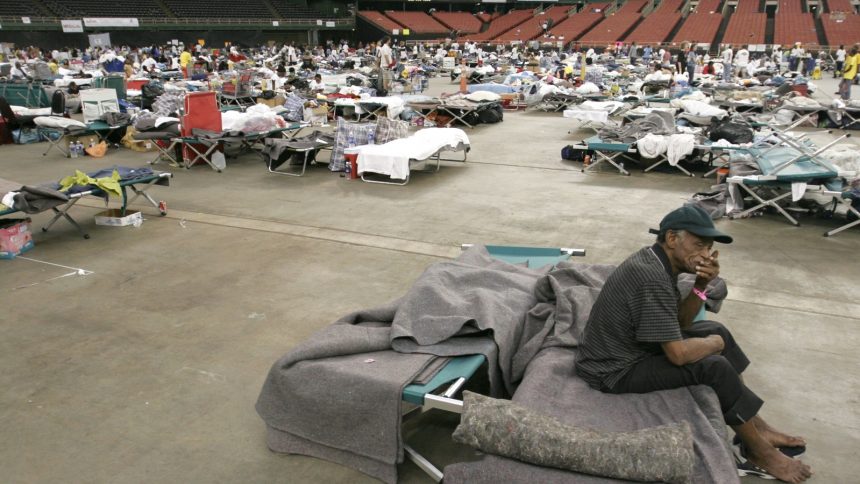This story is a part of State of Emergency, a Grist series that examines the impact of climate disasters on voting and politics. It is made possible with support from the CO2 Foundation.
By the time Mtangulizi Sanyika arrived in Houston in September 2005, he and his wife were exhausted from the constant moving. Sanyika, a lifelong resident of New Orleans and a professor at a historically Black college in the city, had been displaced by Hurricane Katrina and spent weeks moving from town to town. Worried about his mother and sister trapped in New Orleans’s Charity Hospital, Sanyika eventually reunited with his family in Houston, thanks to the city’s resettlement efforts led by Mayor Bill White.
Houston’s administration, with support from FEMA, provided housing for over 200,000 displaced individuals after Katrina. Sanyika and his wife settled in Houston, only to face discrimination from landlords due to their use of recovery funds. Sanyika eventually founded the New Orleans Association of Houston to monitor the treatment of other storm survivors in the city, who faced similar challenges finding housing and employment.
Although Houston initially received praise for its response to Katrina, tensions arose between long-time residents and the relocated evacuees. Negative media coverage fueled racial biases, leading to increased policing and arrests in evacuee communities. Despite efforts to integrate the evacuees into the city’s social fabric, challenges persisted. The experience of Katrina survivors in Houston serves as a cautionary tale for future climate displacement crises.
Mayor Bill White spearheaded Houston’s humanitarian response to Katrina, opting for a unique housing voucher program instead of federal trailers. The program garnered national acclaim, despite challenges such as clustering evacuees in disadvantaged areas and media sensationalism around crime rates.
While some attributed an increase in crime to Katrina evacuees, studies later refuted this claim, pointing to existing crime trends in Houston. The city’s crime statistics did not significantly change after the influx of evacuees, and other cities that hosted evacuees did not experience similar crime spikes. The narrative surrounding Katrina evacuees in Houston highlighted the complex intersection of race, class, and disaster response.






